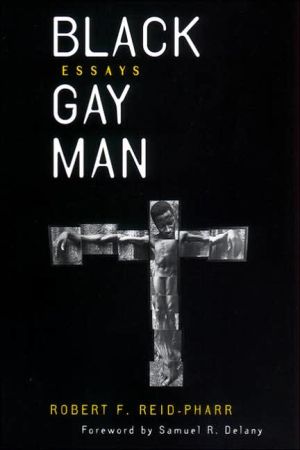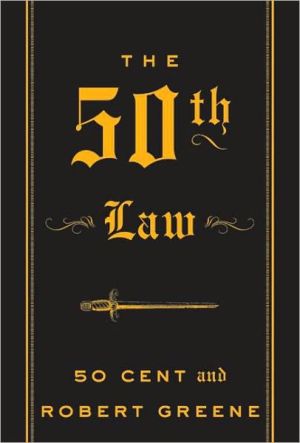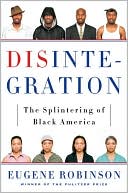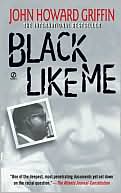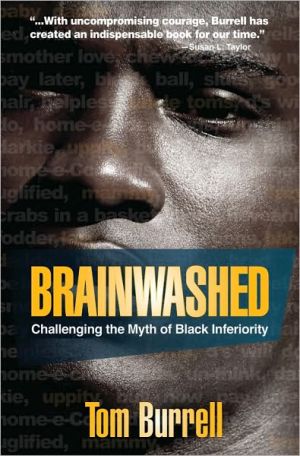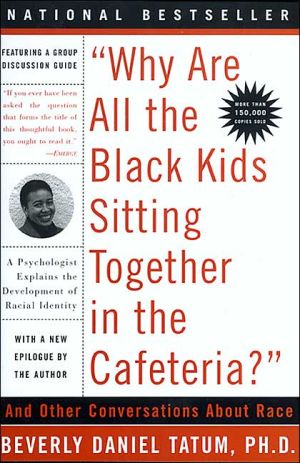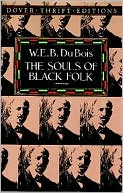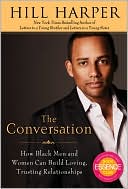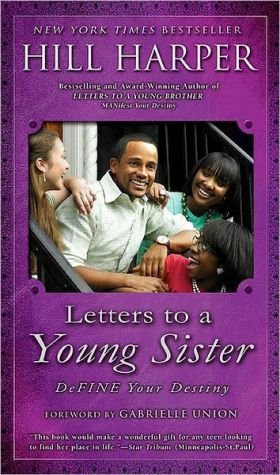Black Gay Man: Essays
At turns autobiographical, political, literary, erotic, and humorous, Black Gay Man will spoil our preconceived notions of not only what it means to be black, gay and male but also what it means to be a contemporary intellectual. Both a celebration of black gay male identity as well as a powerful critique of the structures that allow for the production of that identity, Black Gay Man introduces the eloquent new voice of Robert Reid-Pharr in cultural criticism.At once erudite and readable, the...
Search in google:
Robert F. Reid-Pharr is associate professor of English at the Johns Hopkins University.BooknewsIn nine essays on Afrocentrism, anti-Semitism, and other aspects of identity and intellect, Reid-Pharr (English, Johns Hopkins U.) seeks to expose the "essentially impermeable and thus impure nature" of all American identities. "Moreover," he writes, "even as I demonstrate repeatedly the excessive lengths to which many have gone to reproduce the boundaries of various articulations of the self, I continue to emphasize my belief that the great joy of living in the modern world is the recognition that all processes of naming, all names (black, gay, man), are ultimately monuments to the impossibility of ever fully distinguishing self from other. ... We always find the universal." With a thoughtful foreword by science-fiction author Samuel R. Delany (Princeton U.). Annotation c. Book News, Inc., Portland, OR (booknews.com)
\ \ \ \ Chapter One\ \ \ Speaking through Anti-Semitism\ \ \ All ideology represents in its necessarily imaginary distortion not the existing relations of production (and the other relations that derive from them), but above all the (imaginary) relationship of individuals to the relations of production.... What is represented in ideology is therefore not the system of the real relations which govern the existence of individuals, but the imaginary relation of those individuals to the real relations in which they live.\ —LOUIS ALTHUSSER, "Ideology and Ideological State Apparatuses"\ \ \ You're not the true Jew. You are a Johnny-come-lately-Jew, who just crawled out of the caves and hills of Europe just a little over 4,000 years ago. You're not from the original people. You are a European strain of people who crawled around on your all fours in the caves and hills of Europe, eating Juniper roots and eating each other.\ —KHALID ABDUL MUHAMMAD, speech at Kean College,\ New Jersey, 11/29/93\ \ \ It is amazing to consider how little we actually learned from the incredible controversy that gripped the nation following the shocking remarks of Khalid Muhammad, minister of the Nation of Islam, on the campus of Kean College in November 1993. It was not, of course, that no one paid attention, or that there was any reticence on the part of the variety of national elites to weigh in on the issue. On the contrary, op-ed pieces from the pens of literally dozens of prominent and not so prominent intellectuals appeared overnight on the pages of the country's newspapers and journals, while the U.S. Congress seemed to jump at the chance to censure both Muhammad and his spiritual leader, Minister Louis Farrakhan. What was surprising was not only what limited progress we made in our understanding of the sometimes difficult, often harmonious relationships between individual blacks and Jews but, more important, how underdeveloped our conceptual and theoretical apparatuses remained in relation to that rather ill-defined entity that captured, for a moment, the national imagination, "black anti-Semitism."\ The phrase itself begs to be unpacked of all its manifold and often contradictory meanings. Is black anti-Semitism distinct from the plain old anti-Semitism practiced and preached by whites? Is it, in fact, Black American anti-Semitism, or are we to believe that the particular tensions that beset Black American/ Jewish American relations in this country are replicated in communities of blacks and Jews throughout the world? Is it a contemporary phenomenon or an ancient aspect of black culture and consciousness? I cannot say that I have yet heard or read more than a cursory discussion of these issues. Instead, we have been treated repeatedly to what already seems a set of hackneyed and deeply functionalist readings of black/Jewish relations, readings that always seem to fall short of explaining the intensity with which the idea of black anti-Semitism has gripped our imaginations.\ Blacks and Jews disagree, we are told, on Israel, Palestine, South Africa, affirmative action, school curricula, Jesse Jackson, and, of course, the Nation of Islam itself. More spiritually or philosophically minded commentators tend to focus on the presumably intense Christian religiosity of the black community, while those who favor structuralist approaches generally prefer rather mushy explanations of Jewish/black client relationships. The difficulty here is not so much that these observations are not based in reality. Indeed, the long and noble history of black and Jewish cooperation in the struggle for expanded civil rights and civil liberties aside, contentious exchanges between black and Jewish elites have been a regular part of the American landscape for at least the past thirty years. The anti-Israel statements made by some members of the Student Non-Violent Coordinating Committee in 1967 were reported widely in the press and criticized by a number of Jewish leaders. The struggle, in 1968, between the New York City teacher's union and black advocates of community school control clearly demonstrated deep cleavages in the old black/Jewish civil rights partnership. Andrew Young's meetings with members of the Palestine Liberation Organization, Jesse Jackson's "hymie-town" remark and, later, his association with Louis Farrakhan, the Leonard Jeffries debacle, and the Muhammad speech itself all point to general structural, cultural, and ideological differences between the black and the Jewish communities that become wildly apparent at moments of both national and local crisis. Still, it is worth making the point again that both the black and Jewish communities are veritable studies in complexity, ambiguity, and contradiction. One would be hard pressed to find consensus in either group around the myriad issues that beset them. In fact, it is a relatively easy task to find rather broad areas of overlap in the political and social concerns of blacks and Jews, particularly black and Jewish elites.\ What continues to remain unexamined, however, is just why we are so shocked. Many people have asked why the anti-Semitism that emanates from within certain quarters of the black nationalist community has resulted in so much soul searching and hand wringing, while similarly vitriolic and hateful statements about Italians, gays and lesbians, and Arabs have remained largely unremarked. And perhaps more to the point is the related question of what is it about the figure of the Jew that so suits him as the bête noire of a certain black nationalist project when the relationship of Black Americans to both white Protestants and Catholics arguably has been and continues to be much more oppressive and demeaning. I have pointed already to the difficulty of trying to answer these questions through consideration of familiar black/Jewish political flash points. I also reject out of hand Andrew Hacker's contention that anti-Semitism allows blacks to align themselves more closely with white Protestants. Indeed, Khalid Muhammad's words in relation to white South Africans—"We kill the women, we kill the children, we kill the babies. We kill the blind, we kill the crippled.... We kill the faggot, we kill the lesbian, we kill them all"—hardly seem designed to curry favor with white middle America. Thus, the idea that anti-Semitism among whites is somehow inversely proportionate to antiblack racism frankly seems nonsensical.\ I suggest that we begin the process of understanding the contentiousness within black/Jewish relations—that is to say, unpacking what we mean, by "black anti-Semitism"—by pulling back for a moment, by refusing to accept the idea of anti-Semitism, or any form of racism for that matter, as a free-floating mode of signification by which various peoples express their anxiety and small-mindedness. The task that I have set out for myself is to understand anti-Semitism as an ideological structure, as one of the fictions by which many people, including Black American people, express our alienation within modern society. For this reason I began this essay by quoting a well-worn passage from Louis Althusser's "Ideology and Ideological State Apparatuses," a work in which Althusser forces us to an understanding of the fact that we create ideology, or alienated, imaginary representations of our social condition, precisely because the social condition is itself alienating. Furthermore, Althusser argues that it is ideology, through the complex process of interpellation, or hailing, that produces us as modern subjects.\ I do recognize the danger of overdetermination in Althusser's work. I understand that the process of subjectification is quite a bit more complex and ambiguous than a simple procedure by which individuals are suited to social classes, or interpellated, through the ideological structures erected by state apparatuses and their adjuncts: the family, the church, social organizations, what have you. Still, I believe that Althusser's focus on alienation is particularly instructive for those of us interested in understanding modern black subjectivity. Indeed, as I argue later, the work of anti-Semitism, particularly as it has been expressed by some representatives of the Nation of Islam, is to express black alienation within the dominant narratives of modernity, narratives in which Jews and Jewishness figure centrally, if only as "threats, interlopers, or 'third subjects'" within the dominant structures of modern life, particularly the nation state.\ It is my contention that when Khalid Muhammad, Leonard Jeffries, and Louis Farrakhan speak through anti-Semitism, they express not so much an antipathy for individual Jews as an antipathy for the structures of reason and civility by which anti-Semitic speech has been deemed destructive, dangerous, and, most important, irrational. Further, I suggest that the attraction for the black audience that finds itself enraptured by these men's diatribes is the thrill at seeing articulated within the public purview one's half-formed notions of existing not simply as an outsider within Western norms of civility and rationalism but as the very contradiction of those norms. What the Nation of Islam has done most successfully is to reshape the anxiety that the black subject exists only on the periphery of Western modernity into a general antipathy for the very structures of modernity, including the notions of civility and rationality that mitigate against anti-Semitic discourse and practice. What I take to be the tragedy of this mode of thought is not simply the ugly manner in which Jews have been used to express very real black alienation and scepticism in relation to the entire project of modernity—rationalism, civility, universalism—but also the fact that the focus upon the Jewish subject, especially in the manner practiced by Muhammad and Farrakhan, simply reiterates the tendency within the modern West to insist upon the bifurcation of the in and the out, the self and the other. The Jew remains the focus within the practice of what I am calling black countermodernity not so much because of the various "real-world" differences between many blacks and Jews but, on the contrary, because blacks and Jews are not different enough. The Jew is the interloper who disallows the easy delineation of the nation, the race, the people. As a consequence he must be cast out if "we" are to take form. "You're not the true Jew. You are a Johnny-come-lately-Jew, who just crawled out of the caves and hills of Europe just a little over 4,000 years ago."\ \ \ Black Alienation\ \ \ I think that at this point it is important for me to offer a caveat. I want to provide at least a partial answer to the critique that has been registered by almost every serious respondent to this essay during the several years since its first publication. In the pages that follow I make what I take to be a logical and principled argument about the way in which anti-Semitic rhetoric might properly be taken as an accurate measure of the level of alienation among some elements within the Black American community, particularly those most attracted to black nationalist movements and organizations. I must admit that this approach was designed first and foremost as a critique of those critics who attempted either to distinguish extreme elements in the Black American community (read poor and nationalist) from moderate ones (middle class and integrationist) or, conversely, to rehearse ad infinitum simpleminded versions of a rich-Jew-versus-impoverished-Negro narrative. What I saw and responded to were various versions of "voodoo criticism" in which not only all manner of pseudoscientific nonsense was offered up as fact ("Polls show that 'Black' Americans are twice as likely as their 'white' counterparts to make statements that might be taken as anti-Semitic.") but also in which the Black American was almost never understood as a subject of modern culture. In the absence of serious political and cultural critique, we were being offered images of a Black American community that was not so infinitely diverse that it is often nearly impossible to distinguish Black from white, Negro from Jew, but that was instead a flat, antiquated community stuck in provincialism, ecstatic religiosity, and intense xenophobia. In short, the black was always understood as the primitive.\ I think that the arguments that follow continue to stand on their own merits, and I make no apologies for them here. I will say, however, that, while I maintain that black anti-Semitic rhetoric and the alienation that it demonstrates ought to be taken as markers of the black's complex relationship to modernity, this does not mean that I wish to celebrate so-called Black anti-Semitism. On the contrary, my thrust in this essay and those that follow is precisely to suggest that the Black American is not alien in this nation. Much of the work of Black Gay Man, in fact, is to suggest the very term "Black American" is a study in the redundant and the tautological; the Black American as the American American. The anti-Semitism of groups like the Nation of Islam stems directly from a desire to deny this fact, to contradict the reality of the Black American's modernity, her universality. The bombastic statements of Khalid Muhammad or Minister Farrakhan all turn on the notion that we are essentially an innocent people, out of place in this country. Consequently, our purity, our status as supposed Africans, might be precisely measured by the amount we are able to shock so-called polite American society.\ One is not forced to look far in order to find rather startling critiques by black intellectuals of the narratives—and narrators—that have helped define modernity. Indeed, no less a critic than Henry Louis Gates has devoted much of his professional life to coming to terms with the fact that from its inception in the late eighteenth century the black literary project has been self-consciously concerned not only with demonstrating through literature and literacy the necessity—and the inevitability—of recognizing black subjectivity and individuality, but also with breaking the black/white binarism in which the bestiality of the black acts as proof of the white's humanity. Gates writes:\ \ \ Unlike almost every other literary tradition, the Afro-American literary tradition was generated as a response to eighteenth—-and nineteenth—-century allegations that persons of African descent did not, and could not, create literature. Philosophers and literary critics, such as Hume, Kant, Jefferson, and Hegel, seemed to decide that the absence or presence of a written literature was the signal measure of the potential, innate humanity of a race. The African living in Europe or in the New World seems to have felt compelled to create a literature both to demonstrate implicitly that blacks did indeed possess the intellectual ability to create a written art and to indict the several social and economic institutions that delimited the humanity of all black people in Western cultures.\ \ \ Gates's point is well taken. For it points both to the continual need for black intellectuals to produce work that speaks to the reality that indeed we are human beings and to the rather contradictory and troubling fact that we have been forced to accomplish this task, this articulation of our humanity, within modes of discourse that are deeply flawed precisely because they are constructed upon a denial of this humanity. The struggle for the black intellectual has been to exist at once inside and outside the norms of rationality constructed by the major authors of modern thought. Gates himself has attached the label "signifyin" to this process. At the same time, he has identified a second strain within black thought that would deny the black's implication within modernity altogether, stressing instead a black ontology that both predates and supercedes white Western culture. For Gates, this line of thinking is best represented by the Black Arts Movement and Negritude, both of which were concerned with delineating the parameters of an ancient black consciousness that is literally carried about within the bodies of the individual members of the African diaspora. More recently, certain strains of Afrocentrism have proceeded in much the same manner. In this way, blackness becomes a powerful living entity, one that expresses itself, for those capable of reading and understanding it, in a remarkably predictable and static manner. The quality of black literature and art can be judged then by how closely it conforms to black experience, an experience that stands in contradistinction to the norms of the white West.\ This is the intellectual context out of which the Black Muslim movement and, later, the Nation of Islam developed in the Detroit of the 1930s, a time described by C. Eric Lincoln, perhaps still the most thoughtful student of the Black Muslims, as one of "hunger, confusion, disillusionment, despair, and discontent." More to the point, Black Americans who, along with the rest of the world, were about to witness a shockingly deep economic crisis, the depression, and even deeper political and social crises, World War II and the Holocaust, had themselves just begun to turn the tide against both economic violence and systematic attacks by white terrorists, particularly lynching, a practice that largely defined American race relations from the turn of the century forward. To add insult to injury, the black community, which had distinguished itself in the struggle against German aggression during World War I, found that, as black soldiers returned after their loyal service in the cause of justice and democracy, their new-found sense of self and sense of investment in the national project were resented and resisted by their white compatriots. Lynchings continued apace, with reports of several returning soldiers being tortured and killed while still in uniform. Every black person could expect, per usual, to be segregated, disenfranchised, economically exploited, and then blamed for the supposed failures of his community. What is surprising, then, is not so much that one might have found at this time antidemocratic elements within the black community but, on the contrary, that Black Americans continued to cling so tenaciously to the democratic project, even as the white American disciples of democracy attacked and consistently exploited our various communities, often going so far as to deny our very humanity.\ It follows that when the mysterious and racially ambiguous W. D. Fard began meeting with small groups of the most oppressed members of the black community in the ghettos of Detroit, telling them that they belonged to a tradition that was older, more noble, more innocent and ultimately more democratic than the system of Western rationalism and universality that they recognized as so clearly flawed, he found an audience that was altogether ready to receive and accept his message. Fard's mixture of Christian and Moslem theology, his insistence that the Black American community was not isolated but deeply connected to the rest of the "Asiatic" world, a point to which we return later, and his scathing attacks on white hypocrisy earned for him a place of honor among many of Detroit's black citizens. It is important to remember in this context that Fard's mission—which would later develop, largely through the efforts of Elijah Muhammad, into the Nation of Islam—was itself part of a larger black spiritual, religious, and social movement that included Marcus Garvey's Universal Negro Improvement Association, The Moorish Science Temples, led by the Noble Drew Ali, the United African Nationalist Movement, and even Rastafarianism, which was soon to become a major force in much of the English-speaking Carribean, especially Jamaica. All of these movements stressed the need for blacks to reintegrate themselves into a tradition of what one might think of as black nobility, while severing their enervating and demeaning connections to whites. The impressive public spectacles of the Garvey movement, for example, were designed to make palpable the extraordinary nature of the so-called colored community in the face of constant and systematic demoralization.\ (Continues...)\ \ \ Excerpted from Black Gay Man by ROBERT F. REID-PHARR. Copyright © 2001 by New York University. Excerpted by permission. All rights reserved. No part of this excerpt may be reproduced or reprinted without permission in writing from the publisher. \ \ \ \ \ \ Antitrust Goes Global\ What Future for Transatlantic Cooperation?\ \ \ Edited by Simon J. Evenett, Alexander Lehmann, and Benn Steil\ \ Brookings Institution Press\ Copyright © 2000 The Brookings Institution Press. All rights reserved.\ TAILER
AcknowledgmentsForewordIntroduction1BlackISpeaking through Anti-Semitism21IICosmopolitan Afrocentric Mulatto Intellectual44IIIAt Home in America62GayIVDinge85VTearing the Goat's Flesh99VIThe Shock of Gary Fisher135ManVIILiving as a Lesbian153VIIIIt's Raining Men: Notes on the Million Man March164IXA Child's Life176Notes183Index191About the Author195
\ From the Publisher"A wonderful thing of work and play, feeling and thought, that moves through my brain as though I needed to be reminded of why I chose life as an intellectual. Reading Black Gay Man I realized once again that we all do indeed need to be reminded that to think, write, and read about identity, in this moment of fear and hysteria around a 'different' world, is to assist a necessary articulation: the new trying to make itself out of--not separate from--the carcass of the old."\ -Wahneema Lubiano,Duke University\ "Considering political events, publications, social movements and cultural developments that emerge from the early 1960s through the end of the twentieth century, Robert Reid-Pharr looks outward so as to interrogate the very self he is understood to comprise. The result is a sort of anti-memoir of black gay male experience--a sustained rumination that so insistently inhabits the terms of that identity that it explodes them from the inside, making it impossible for any of us to bear them in quite the same way that we previously had."\ -Phillip Brian Harper,author of Private Affairs: Critical Ventures in the Culture of Social Relations\ "Startling and provocative. . . . Reid-Pharr presents a cogent analysis that combines the personal with the political, the intellectual with the emotional and the erotic. . . . Reid-Pharr's ability to move these works-and their themes-from the limited analysis of the academy into a broader realm of lived experience and social context that makes them, as well as Reid-Pharr's own thoughts, vital and genuinely consequential."\ -Publisher's Weekly,\ "Repeated readings are richly rewarded."\ -CHOICE,\ "Reid-Pharr brilliantly puts the ambivalences of bodily pleasure back into the serious business of identity politics."\ -Project Muse Book Review,\ \ \ \ \ \ BooknewsIn nine essays on Afrocentrism, anti-Semitism, and other aspects of identity and intellect, Reid-Pharr (English, Johns Hopkins U.) seeks to expose the "essentially impermeable and thus impure nature" of all American identities. "Moreover," he writes, "even as I demonstrate repeatedly the excessive lengths to which many have gone to reproduce the boundaries of various articulations of the self, I continue to emphasize my belief that the great joy of living in the modern world is the recognition that all processes of naming, all names (black, gay, man), are ultimately monuments to the impossibility of ever fully distinguishing self from other. ... We always find the universal." With a thoughtful foreword by science-fiction author Samuel R. Delany (Princeton U.). Annotation c. Book News, Inc., Portland, OR (booknews.com)\ \ \ Publisher's WeeklyStartling and provocative...Covering a wide range of topics--black anti-Semitism, the Million Man March, interracial sex, the black family, gay male identity and lesbianism--Reid-Pharr presents a cogent analysis that combines the personal with the political, the intellectual with the emotional and the erotic...The vitality and importance of this collection resides in Reid-Pharr's ability to move these works--and their themes--from the limited analysis of the academy into a broader realm of lived experience and social context that makes them, as well as Reid-Pharr's own thoughts, vital and genuinely cons uential.\ \
